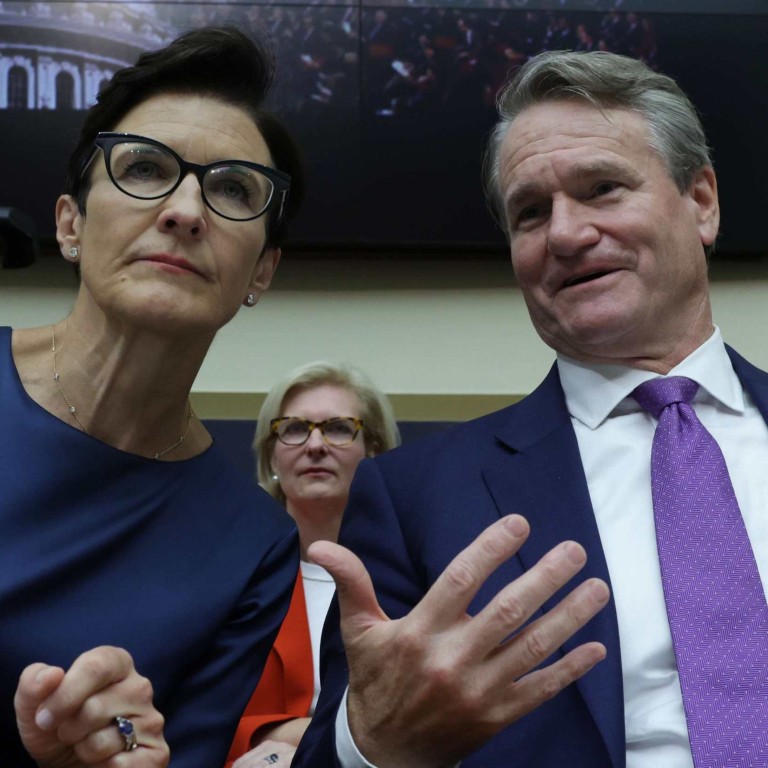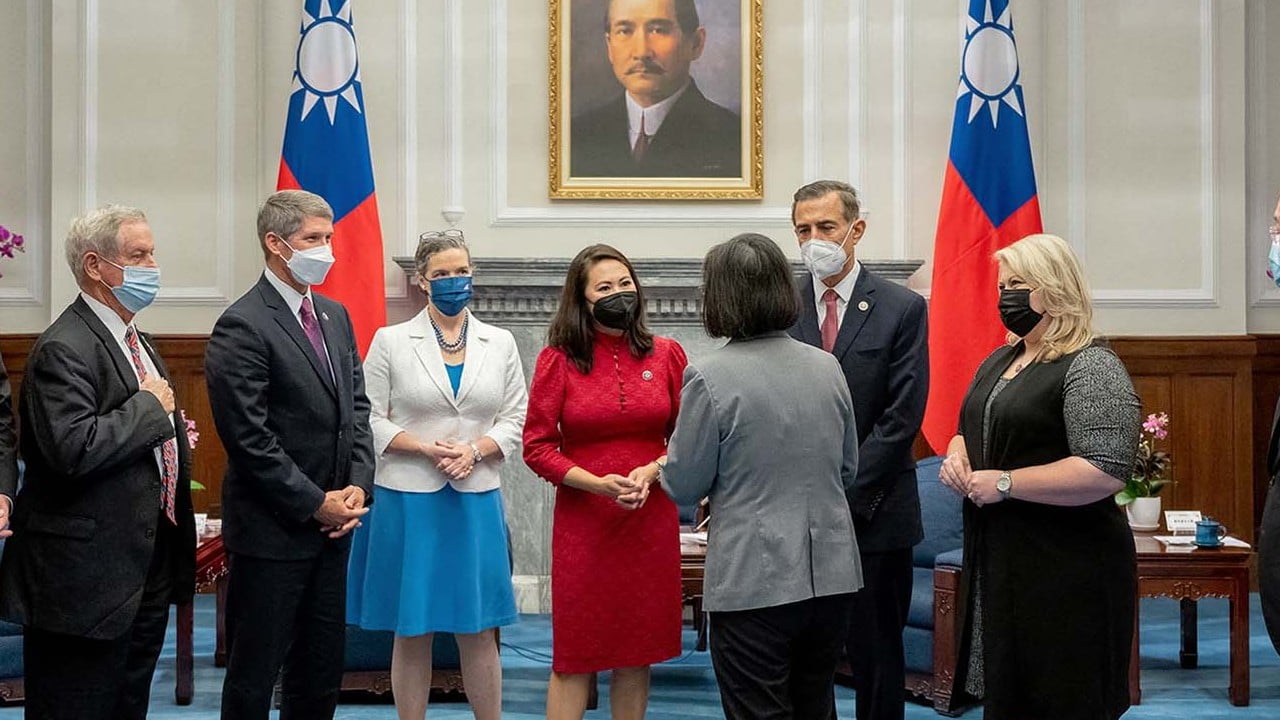
US bank CEOs say they would stop working with China in event of Taiwan attack
- US lawmakers grilled the heads of top financial institutions over the economy, as well as their ties to China and Russia
- The executives said they would do as the US government instructed in event of a Taiwan invasion by mainland forces
Some of the top US banks said on Wednesday that they would stop working with China in the event of a Taiwan invasion by mainland forces, if the United States government instructed them to do so.
The remarks were made during a hearing before the House of Representatives Financial Services Committee, when some lawmakers went after the CEOs over their institutions’ business operations in Russia as well as China, whose increasingly bellicose stance on Taiwan is causing growing tension with Washington.
The line-up included CEOs of the four largest US banks: JPMorgan Chase & Co’s Jamie Dimon, Wells Fargo’s Charles Scharf, Bank of America’s Brian Moynihan and Citigroup’s Jane Fraser.
They were joined by the CEOs of the country’s largest regional lenders, US Bancorp, PNC Financial and Truist.
PLA leaders unlikely to resist a move by Xi Jinping on Taiwan, US analyst says
California congressman Brad Sherman, a Democrat, pressed Dimon and Fraser about their Russian clients, sparking a brief, contentious exchange in which Dimon – known for his blunt and forthright style – attempted to interject while Sherman was speaking.
In an unusual line of questioning for a Republican congressman supportive of the industry, Blaine Luetkemeyer pressed Dimon, Fraser and Moynihan on how they would respond were mainland China to invade Taiwan, which Beijing views as sovereign Chinese territory.
In such an event, the executives said they would do as the US government instructed. “We will follow the government’s guidance which has been for decades to work with China. If they change the position, we will immediately change it as we did in Russia,” Moynihan said.
The Bank of America CEO warned that the long-term competitiveness of China’s banks was the “real issue” for concern. “They could acquire any of us without much problem, in terms of financial resources.”
While such hearings rarely result in legislative action, they are risky for the CEOs, who were forced to defend their banks on issues including their ties to Russia and stances on firearms purchases and employee unionisation at a time when lawmakers are looking to boost their profiles ahead of November elections in which control of Congress is at stake.
Top of mind for Republicans and Democrats alike, however, was the impact of soaring inflation on the economy and banks’ customers.
Dimon and Moynihan said consumers continue to be in good shape, with spending holding up well, and both said interest rate hikes were necessary for getting a grip on inflation.
While Moynihan acknowledged that that meant higher borrowing costs on key consumer products like mortgages, “the reality is it needs to be done”, he said. The central bank announced it was raising rates again by three-quarters of a percentage point on Wednesday afternoon.
US Fed delivers third-straight big hike, sees more increases ahead
As interest rates rise, Fraser said she expected people with lower credit scores to experience greater financial stress. Savings rates, which soared during the Covid-19 pandemic as Americans stayed at home, will probably decline, she added.
“We’re going to be in for tougher times ahead,” Fraser said. Dimon said there was a chance of a mild US recession which could be worse depending on the course of Russia’s war in the Ukraine, which has created uncertainty over global energy and food supplies.
When pressed on risks to the US financial system, Fraser later added that energy supply shocks in Europe could affect the US economy by reducing demand for American goods and services.
Dimon said the Ukraine conflict, which Russia calls a special military operation, and growing tensions with China, were the biggest vulnerability for global financial stability.


